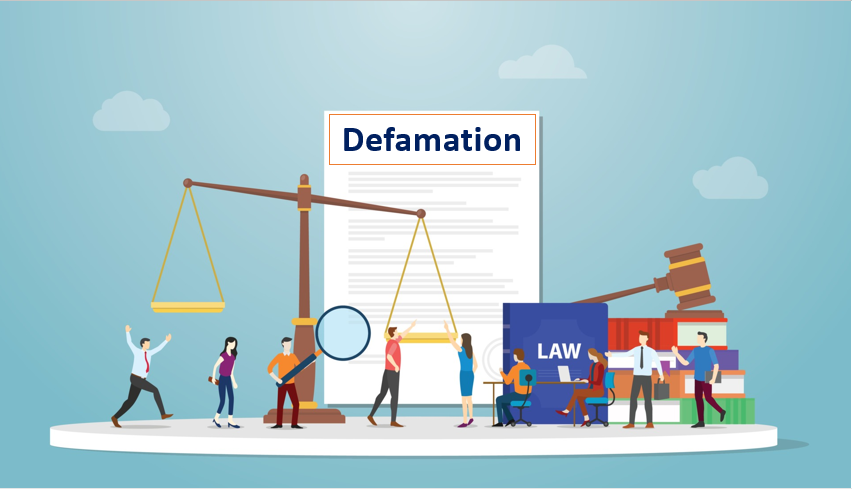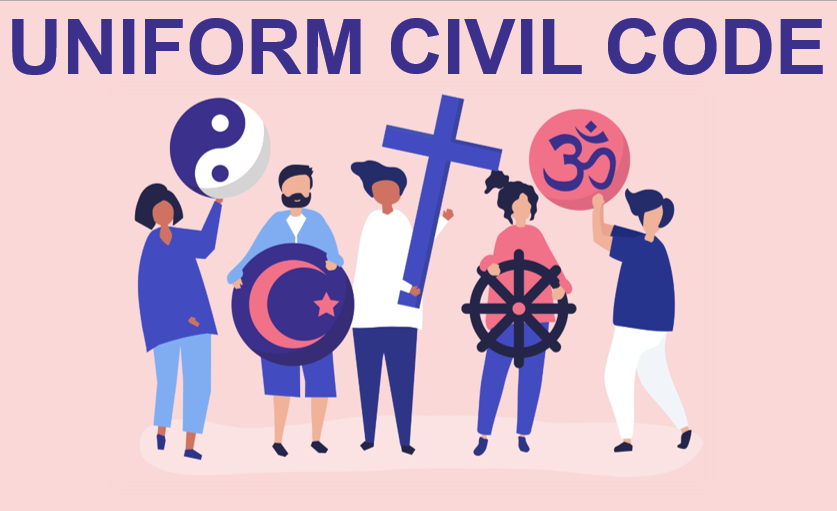Published on 9th April 2025
Authored By: Yashasvi Noniwal
Maharishi Markandeshwar (Deemed To Be University) Mullana-Ambala, Haryana
Introduction
In India, workplace discrimination[1] is primarily prohibited under Article 16[2] of the Indian Constitution[3], which guarantees “equality of opportunity in matters of public employment” and states that no citizen can be discriminated against based on religion, race, caste, sex, place of birth, or any other ground in government jobs; however, this provision does not fully extend to the private sector, leaving room for potential discrimination in private companies, although various laws and interpretations can still provide some protection for employees facing discrimination in the private sector[4] as well.
India has made significant strides in promoting equality and preventing discrimination in the workplace. The Indian government has enacted several laws to protect employees from discrimination and harassment, and to promote a safe and inclusive work environment. This article will provide an overview of the laws and employee rights related to workplace discrimination in India.
Workplace discrimination laws in India
Article 15[5] of the Constitution:
This article also prohibits discrimination based on religion, race, caste, sex, or place of birth, further reinforcing the concept of equality in employment[6].
No specific comprehensive law for private sector:
While the Constitution prohibits discrimination in government jobs, there is no single, dedicated law explicitly covering private sector employment against discrimination.
- Types of discrimination covered:
Discrimination based on factors like caste, religion, sex, gender, age, disability, marital status, and place of birth can be considered grounds for legal action in certain situations.
- Enforcement mechanisms:
Employees who face discrimination can file complaints with the relevant government authorities, such as the National Commission for Scheduled Castes[7] and Scheduled Tribes[8], National Commission for Women, or approach the courts for legal redress.
- Specific areas where discrimination might occur:
2.1 Hiring and recruitment:
Refusing to hire someone based on protected characteristics.
2.2 Promotions and career advancement:
Disproportionately denying promotions to individuals based on their protected characteristics.
2.3 Compensation and benefits:
Providing different salary packages or benefits based on protected characteristics.
2.4 Work assignments and responsibilities:
Assigning less desirable tasks or responsibilities based on discriminatory factors.
The Equal Remuneration Act, 1976
The Equal Remuneration Act, 1976[9], prohibits employers from paying men and women different wages for the same work or work of a similar nature. The Act also prohibits employers from discriminating against employees based on sex.
The Sexual Harassment of Women at Workplace (Prevention, Prohibition and Redressal) Act, 2013
The Sexual Harassment of Women at Workplace (Prevention, Prohibition and Redressal) Act, 2013[10], provides a framework for preventing and addressing sexual harassment in the workplace. The Act defines sexual harassment, outlines the procedures for reporting and investigating complaints, and provides penalties for employers who fail to comply with the law.
The Persons with Disabilities (Equal Opportunities, Protection of Rights and Full Participation) Act, 1995
The Persons with Disabilities (Equal Opportunities, Protection of Rights and Full Participation) Act, 1995[11], provides protections for employees with disabilities. The Act prohibits employers from discriminating against employees with disabilities and requires employers to provide reasonable accommodations to employees with disabilities.
The Maternity Benefit Act, 1961
The Maternity Benefit Act, 1961[12], provides protections for pregnant women in the workplace. The Act requires employers to provide maternity leave and benefits to eligible employees and prohibits employers from discriminating against pregnant women.
The Scheduled Castes and the Scheduled Tribes (Prevention of Atrocities) Act, 1989
The Scheduled Castes and the Scheduled Tribes (Prevention of Atrocities) Act, 1989[13], provides protections for employees from Scheduled Castes and Scheduled Tribes. The Act prohibits employers from discriminating against employees from Scheduled Castes and Scheduled Tribes and provides penalties for employers who fail to comply with the law.
Employees Provident Fund and Miscellaneous Provisions Act, 1952
One of the most important pieces of legislation dealing with employees’ society security is the Employees Provident Fund and Miscellaneous Provisions Act, 1952(EPF Act)[14]. According to the EPF Act, both the employer and the employee must contribute a minimum of 12% of the employee’s ‘basic salary’ to the EPF fund. Furthermore, the employer’s payment is allocated towards the employee’s pension fund, and the employee is entitled to a monthly pension upon retirement.
Employee Rights[15]
Employees in India have several rights related to workplace discrimination, including:
- Work Agreement: This written contract outlines the terms and conditions of work as well as the rights and responsibilities of both the employer and the employee. Before beginning work, an employee has the right to a written employment contract that has been properly signed by the employer. Since the employee’s agreement already specifies the legal path to be taken in the event of a dispute, a well-written agreement created by a labor lawyer can avoid any unanticipated animosity between the employer and employee.
- Leave: Employees are entitled to holidays and leave during their employment. In India, employees often have access to four different kinds of leaves:
- Casual Leave: In the event of an unexpected personal issue or an urgent family emergency, an employee may take a casual leave of absence. A corporation usually allows up to 3 days of unpaid leaves every month.
- Paid leave: Workers are entitled to paid time off, which they can take on a monthly, quarterly, or annual basis. The employee’s compensation cannot be withheld by the company in exchange for paid time off.
- Sick leave: In the event that an employee becomes ill, they are entitled to a set amount of sick days.
- Compensatory Leave: If the employee works on official off days, he or she can take these leaves.
- Other leaves: An employee may take unpaid leaves, for which the company may withdraw money from their pay.
In most cases, if an employee’s sick absence lasts longer than two days, they must provide a medical certificate. The HR policies of the business will determine this. To get your company’s leave policy created, you need to speak with a labor lawyer.
- On-Time Salary: At the conclusion of each month, an employee is entitled to a timely salary. Once the proper deductions, including provident fund and TDS, have been made, the company must pay the employee’s salary. A labor lawyer might be hired by an employee to legitimately sue the corporation for not paying a salary.
- Maternity Benefit: During pregnancy and/or after delivery, a female employee is eligible for 26 weeks of maternity/pregnancy leave. The Maternity Benefit Act, 2017 in India safeguards the interests of employers of expectant and nursing mothers. Maternity leave can also be taken in the event of pregnancy complications, an early birth, a miscarriage, or a medically assisted pregnancy termination. In India, some private companies also give their male employees paternity leave so they can take care of their infant.
- Gratuity: In accordance with the Payment of Gratuity Act of 1972[16], a gratuity is a retirement reward that is given to an employee upon their retirement, termination, resignation, or death. This payment is given as a thank you to employees who have been with the organization consistently for at least five years. If the employer does not give the employee the gratuity, employment lawyers may be appointed to pursue the necessary legal action.
- Provident Fund: Employees may choose to retain a portion of their pay invested in EPF under the Employees’ Provident Funds & Miscellaneous Provisions Act, 1952. The employer transfers funds directly into the PF accounts. The Employees Provident Fund Organization (EPFO) manages the employer and employee contributions.
- Notice Period: An employee must be given notice in order to prepare for their termination if their employer decides to end their job. An employee cannot be fired by their employer without providing notice. An employee may consult a labor lawyer to file a complaint against their employer for wrongful termination of employment if they were fired without cause or any prior notice.
- Protection against Sexual Harassment: It is the employer’s responsibility to protect all employers, especially female employees, from harassment of any type. Any instance of sexual harassment involving an employee must be addressed right once. In order to address any instances of sexual harassment in the workplace, the employer must create a redressal committee and implement a policy that forbids it. The Sexual Harassment of Women at Workplace (Prevention, Prohibition and Redressal) Act of 2013 allows a woman to report sexual harassment at work. An employee can also file a sexual harassment case in the labor court by hiring an employment lawyer.
Case Laws
Several landmark cases have shaped the interpretation and application of workplace discrimination laws in India. Some notable examples include:
– Vishaka v. State of Rajasthan (1997)[17]: The Supreme Court of India held that sexual harassment is a form of sex discrimination and outlined guidelines for preventing and addressing sexual harassment in the workplace.
– Rajasthan State Road Transport Corporation v. Shobhata Devi (2016)[18]: The Rajasthan High Court held that employers have a duty to provide a safe and healthy work environment and to prevent sexual harassment.
– Ranjana Kumari v. State of Madhya Pradesh (2015)[19]: The Madhya Pradesh High Court held that employers have a duty to provide reasonable accommodations to employees with disabilities.
Conclusion
Workplace discrimination is a serious issue in India, and employees have several rights and protections under Indian law. Employers must comply with laws such as the Equal Remuneration Act, the Sex Harassment of Women at Workplace Act, and the Persons with Disabilities Act, among others. Employees must be aware of their rights and protections and must report any incidents of discrimination or harassment to their employer or the relevant authorities. By working together, we can create a safe and inclusive work environment for all.
References
- The Equal Remuneration Act, 1976
- The Sex Harassment of Women at Workplace (Prevention, Prohibition and Redressal) Act, 2013
- The Persons with Disabilities (Equal Opportunities, Protection of Rights and Full Participation) Act, 1995
- The Maternity Benefit Act, 1961
- The Scheduled Castes and the Scheduled Tribes (Prevention of Atrocities) Act, 1989
- Employees’ Provident Funds & Miscellaneous Provisions Act, 1952
- Payment of Gratuity Act of 1972
- Vishaka v. State of Rajasthan, (1997) 6 SCC 241
- Rajasthan State Road Transport Corporation v. Shobhata Devi, (2016) 3 RLW 2436
- Ranjana Kumari v. State of Madhya Pradesh, (2015) MP LJ 1234


